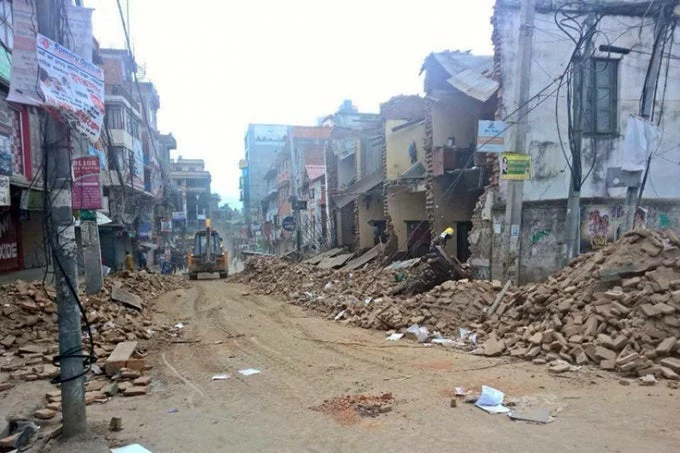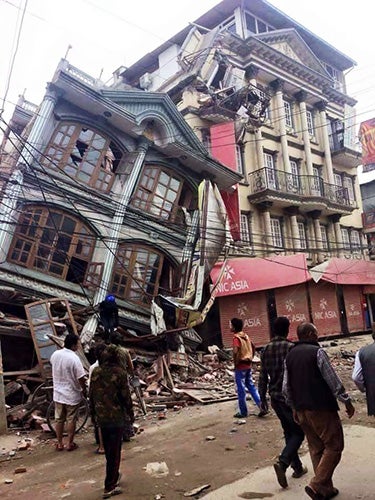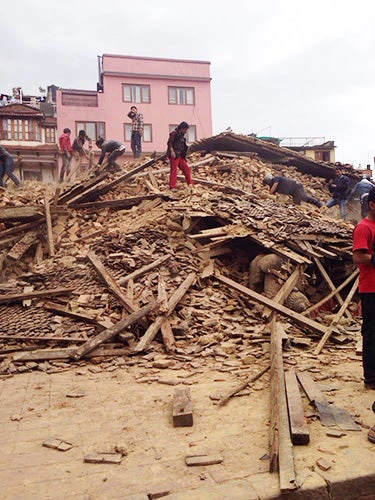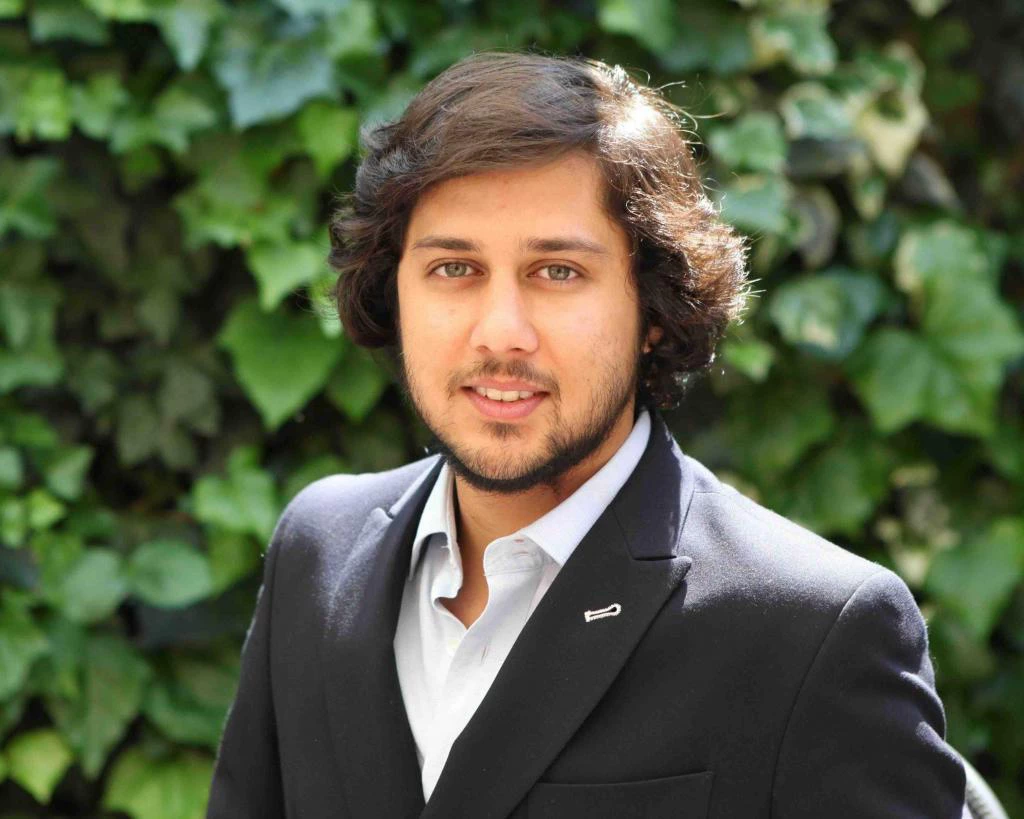
I am lucky that my family is safe. We have been fortunate. The majority of the people in Kathmandu are camped out in makeshift tents set up at various open spaces across the city — schools, army barracks and open fields. Some of these are coordinated by the rescue workers while others are set up by local residents. In some places, cremations happen only 5 meters away from where people sleep. The rain makes it very difficult in an already emotionally scarring time. This is just in Kathmandu.

Rural areas, where 80% of Nepalis live, are devastated. Entire villages have disappeared, buried under landslides triggered by the multiple quakes. Where they haven't, village houses, made mainly of mud and wood, have been reduced to dust, leaving people exposed to the elements. This is happening in some of the most difficult-to-reach hilly and mountainous terrain.
The number of casualties rises by the hour. Although my family and I are safe, many of my friends have lost relatives. Many people we know no longer have their houses. Our staff’s granddaughter needs to have her leg amputated. My "Didi" who took care of me as a child and is a second mother to me - lost her cousin who was crushed when their house collapsed. She really does not even know how to begin to mourn, knowing she still has to keep herself and many other safe.
The heritage we have lost is equally unimaginable. Centuries-old temples and palace squares are down in dust. Imagine the Due Torri in Bologna or the Washington Monument in Washington D.C. crumbling into rubble. The loss has been demoralizing.
The international community has reacted swiftly and relief efforts are in full swing. Hercules and IL-76 military aircrafts have been flying around the clock bringing in supplies, relief materials and workers. Kathmandu, a valley, has only two major highways connecting it to the rest of the world by land - one with China and one with India. Reports of damage to those highways has limited what can be brought into the city by land.

However, this is the just the beginning. The greatest challenges are yet to come. The monsoon season is just a month away. The wet monsoon months are synonymous with outbreaks of various diseases including dysentery, cholera, and hepatitis. With many people's homes destroyed, crowded camps will continue to provide refuge in the coming months. Such densely packed and crowded places with poor hygiene conditions will be ripe breeding grounds for diseases, especially in Kathmandu, where clean water is a scarcity even under normal circumstances.
Here’s my plea to everyone reading this.
The first response has been absolutely fantastic and lifted our spirits, but the support will need to be sustained over time. Relief will not only be limited to rebuilding but also preventing disease outbreaks, which will be more prevalent during the monsoon months.
We will need clean water, medication, waterproof clothes, and infrastructure support to build hygienic camps for people who have lost their homes.
Dealing with potential outbreaks will be more challenging with this devastation. Please support organizations involved in Nepal’s relief effort and also help build awareness around the impending health and sanitation issues.
It has been a very scary last few days. It has been the first time that I’ve had to confront my own mortality: sitting, waiting in the eerily quiet night knowing there will be another shock. But also overcoming this anxiety to help my family and everyone at home, and then, once they are safe, the rest of the country.
We need your support. Nepal needs you.
Blog in English: http://blogs.worldbank.org/endpovertyinsouthasia/nepal-needs-your-support
Blog in Spanish: http://blogs.worldbank.org/voices/es/nepal-necesita-su-ayuda
Blog in Arabic: http://blogs.worldbank.org/voices/ar/endpovertyinsouthasia/nepal-needs-your-support
Blog in French: http://blogs.worldbank.org/voices/fr/le-nepal-a-besoin-de-votre-aid
What we're doing in Nepal: http://www.worldbank.org/en/country/nepal/brief/fact-sheet-world-bank-do...


Join the Conversation